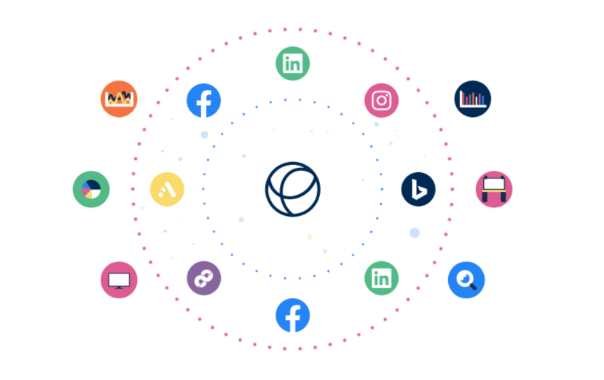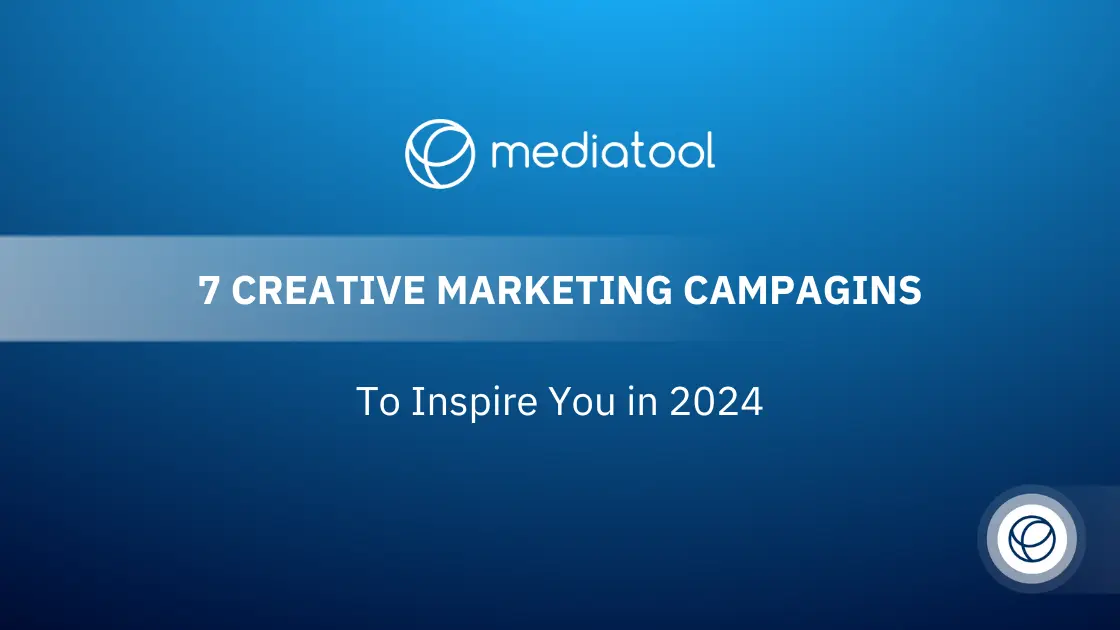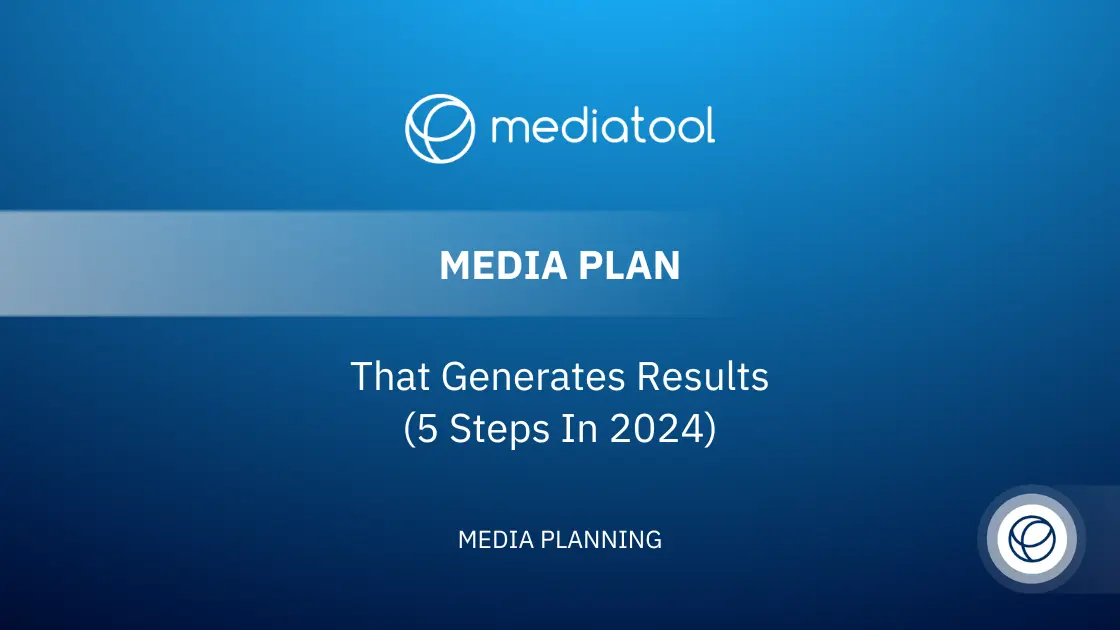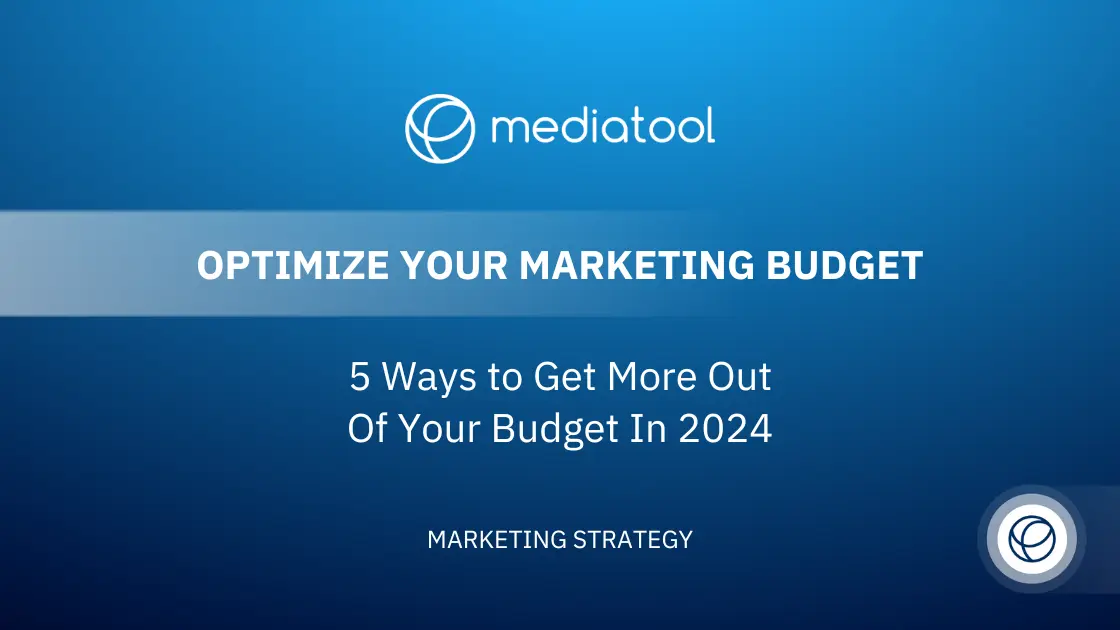In today’s rapidly evolving digital landscape, marketers must stay ahead, optimize their strategies, and connect meaningfully with their audience. The influx of data and the need for timely, personalized communication have made it imperative to adopt tools that not only streamline operations but also enhance the effectiveness of marketing efforts.
Many grapple with these complexities, seeking a unified solution to manage their diverse marketing needs and create cohesive, impactful campaigns. The answer to these challenges lies in building a robust marketing technology (martech) stack with marketing software at its core.
Despite the undeniable potential of these comprehensive tools, a substantial gap remains in their utilization. Marketers are tapping into just a fraction of their martech stack’s capabilities, effectively using only one-third of its potential. This underutilization is a growing trend, even as investment in martech escalates. Bridging this gap is crucial, requiring a concerted effort to fully leverage the tools and unlock the full spectrum of benefits they offer.
In this comprehensive guide, we will explore the critical components of marketing software, its pivotal role in shaping a high-performing martech stack, and the transformative impact it can have on your marketing initiatives.
Whether you’re looking to enhance efficiency, drive engagement, or gain insightful analytics, this journey into the intricacies of marketing software is your first step toward marketing excellence.

What is Marketing Software?
Marketing software has become an integral tool for savvy marketers aiming to streamline business processes and enhance their marketing strategies. On average, Chief Marketing Officers allocate approximately 25.4% of their total resources to maintaining and improving their martech stacks, illustrating the significant investment businesses are making in these technologies.
But what exactly encompasses this powerful tool, and how does it revolutionize the way we approach marketing?
A Multifaceted Digital Assistant
Picture marketing software as an advanced digital assistant that consolidates multiple platforms and tasks under one umbrella. From automating repetitive tasks and managing email campaigns via an email service provider to organizing social listening tools and other marketing channels, it’s the ultimate solution for efficiency.
Analyzing and Predicting with Precision
At its heart, marketing software is the brain behind your campaigns. Utilizing data visualization techniques and lead-scoring algorithms enables businesses to send highly relevant messages and predict consumer trends, ensuring you’re always one step ahead.
A Centralized Marketing Hub
Marketing software consolidates various software categories and tools into a unified hub. From sales automation to contact management, it offers a centralized platform for your marketing and sales departments. Popular tools like Campaign Monitor and Constant Contact facilitate seamless management of automated campaigns and email interactions.
Adaptive Learning and Customization
More than just a static system, modern marketing management software is designed to learn and adapt. Integrating AI, it analyzes past campaigns and user behavior, making intelligent recommendations to enhance future strategies. It’s like having a marketing guru on your team, constantly learning and guiding you toward success.
Bridging Digital and Physical Worlds
Marketing software goes beyond just digital campaigns. It integrates with in-store systems and point-of-sale (POS) devices, ensuring a consistent experience whether customers interact online or in-store. This holistic approach ensures that every touchpoint is an opportunity to connect and promote growth.
Tailored for Every Business
Regardless of size or industry, there’s a marketing software solution tailored to fit your needs. It offers customizable templates and strategies, ensuring your message resonates with your unique audience. From small local businesses to large corporations, marketing software adapts to serve your specific objectives.
In B2B marketing, the complexity of tasks and the need for diverse functionalities have led professionals to adopt a wide range of tools. In fact, 44% of B2B marketing professionals have reported having five to ten different tools in their marketing technology stack, highlighting the necessity for versatility and adaptability in marketing software.
Benefits of Marketing Software
Dive deep into the transformative world of marketing software, the digital powerhouse reshaping how brands interact, analyze, and engage in today’s fast-paced market. Here’s why savvy marketers are making the smart choice to integrate these tools into their marketing efforts.
Efficiency and Productivity
With marketing software, tedious tasks become streamlined, automating email campaigns, social media posts, and data analysis. Tools like marketing automation software handle repetitive marketing tasks, leaving your marketing team more time to focus on strategy and creativity.
Data-Driven Precision
These tools transform marketing from guesswork to precision. Google Analytics and other data visualization tools provide real-time insights and lead scoring, ensuring every marketing move is strategic and informed.
Brand Consistency
Maintain a cohesive brand voice across all channels, from email marketing to social media platforms, ensuring your message is consistent and impactful.
Cost Effectiveness
Maximize your budget with marketing software, reducing the need for extensive manual labor and minimizing the risk of costly errors. Email marketing software like Constant Contact ensures your messages are targeted and effective, providing more bang for your buck.
Adaptability
Stay ahead of market trends and consumer needs with tools that adapt in real time. Marketing automation platforms pivot your strategies, ensuring your brand remains relevant and relatable.
Enhanced Engagement
Forge stronger customer relationships with tools designed to engage. Social listening tools, combined with robust CRM (customer relationship management) systems, ensure you’re not just talking to your audience but engaging in meaningful conversations.
Seamless Integration
Marketing software tools don’t work in isolation. They integrate seamlessly with various business processes and other software categories, creating a cohesive and efficient workflow.
Scalability
Whether you’re a small startup or a large enterprise, marketing software scales to meet your needs. As your business grows, your marketing technology stack evolves, ensuring long-term success and efficiency.
By integrating marketing software into your strategy, you’re not just adding tools; you’re transforming your entire approach to business and marketing. Embrace the change, optimize your processes, and watch your brand reach new heights.
Key Features of Marketing Software

Embarking on a quest to establish an efficient and effective martech stack? Understanding the pivotal features of marketing software is crucial! Let’s unravel the essential components that render marketing software an invaluable asset for your marketing efforts.
Marketing Automation
This is the heart of your marketing technology stack, simplifying complex marketing tasks. Imagine automating email campaigns, social media posts, and lead nurturing processes. It’s like having a virtual assistant that works around the clock, ensuring no opportunity is missed.
Analytics and Reporting
Dive deep into your marketing data with tools that offer insights and analysis. Whether it’s Google Analytics integration for web pages or detailed reports on email campaigns, marketing software provides a clear picture of your performance. Make data-driven decisions to enhance your marketing efforts and report on your success with ease.
Campaign Management
Oversee all your marketing campaigns in one central hub. From email marketing to social marketing campaigns, track performance and optimize for success. Marketing automation software ensures your campaigns are cohesive and aligned with your overall strategy.
Customization and Personalization
Tailor your communications and content to meet the unique needs of your audience. Use customer data to send highly relevant messages, ensuring your marketing resonates and converts.
Integration
Your marketing software should play nicely with other tools in your stack, from CRM systems for managing customer relationships to social media platforms for a unified presence. Look for solutions that offer seamless integration to streamline your processes. With over 11,000 martech solutions available as of 2023, ensuring compatibility and integration capabilities are more crucial than ever to create a cohesive marketing technology ecosystem.
Social Media Management
Navigate the dynamic world of social media with tools designed to schedule posts, track engagement, and manage your presence across multiple platforms. This is essential for businesses looking to maintain an active and engaging online presence.
Email Marketing
Connect with your audience through targeted email campaigns. From drip campaigns to newsletters, email marketing software ensures your messages hit the inbox at the right time, every time.
Lead Generation and Management
Attract and nurture your prospects throughout their journey. Use landing pages to capture leads, lead scoring to prioritize them, and automated follow-ups to convert them.
Customer Relationship Management (CRM)
Build and maintain strong relationships with your customers. Track interactions, manage contact information, and personalize communications to enhance customer loyalty.
Content Management
Organize and manage your content across various channels. Ensure consistency and relevance, whether dealing with website content, blog posts, or social media updates.
Search Engine Optimization (SEO)
Optimize your content to rank higher in search engine results, driving organic traffic to your site. Utilize tools that provide insights on keywords, backlinks, and on-page SEO factors.
Data Visualization and Reporting
Transform your data into actionable insights. Utilize data visualization tools to interpret complex data sets and generate comprehensive reports that guide your marketing strategies.
User-Friendly Interface
Ensure your marketing software is accessible and easy to use. A user-friendly interface reduces the learning curve and allows your marketing team to hit the ground running.
Scalability
As your business grows, your marketing software should grow with you. Look for solutions that can handle increased demands and offer additional features as your needs evolve.
Security and Compliance
Protect your customer data and ensure your marketing practices comply with industry regulations. Choose a marketing software provider that prioritizes security and helps you navigate the complex data protection landscape.
Support and Training
Don’t go it alone. Select a marketing software tool that offers robust customer support, training resources, and a community of users to help you maximize your investment.
Cost-Effectiveness
Get the most bang for your buck. Evaluate the ROI of your marketing software, ensuring it delivers value and contributes to your bottom line.
These key features underscore the role of marketing software in streamlining operations, driving engagement, and delivering results. By harnessing these tools, you empower your marketing team to excel and propel your brand to new heights. Dive into the world of marketing software and unlock the full potential of your marketing efforts!
Examples of Marketing Tools
Building an efficient and effective martech stack is crucial for businesses looking to thrive in today’s digital landscape. Here is a condensed list of tools that can serve as a great starting point, along with some honorable mentions.
Enhance Efficiency
HubSpot: A comprehensive platform offering marketing, sales, and customer service tools, all integrated to streamline operations.
Asana: A project management tool that helps teams coordinate and manage their work efficiently.
Zapier: An automation tool that connects your favorite apps and services, streamlining workflows and saving time.
Drive Engagement
Mailchimp: A user-friendly email marketing tool, perfect for creating engaging email campaigns and managing subscriber lists.
Intercom: A customer messaging platform that enhances communication and engagement with customers across various channels.
Yoast SEO: A WordPress plugin essential for optimizing your website content for search engines and increasing visibility and engagement.
Gain Insightful Analytics
Google Analytics: The go-to web analytics service that provides valuable insights into website traffic and user behavior.
Adobe Analytics: A comprehensive analytics suite for a deep dive into web and mobile app experiences, helping you make data-driven decisions.
Tableau: A business intelligence tool that excels in visual data analysis, making complex data more understandable and actionable.
Honorable Mentions

Mediatool: A strategic media planning tool that provides a holistic view of your marketing efforts, helping optimize performance and ROI. Mediatool is a media manager’s dream. Your global media team can become more efficient and effective, gaining greater control over media campaigns with enhanced visibility into media data for smarter investment decisions. Create one-click reports on all your global media data. Plan, track, and report all from a centralized hub.
Perfect for: Media planners, marketers, advertisers—anyone needing to plan, track, and report on campaigns.
Trello: A versatile collaboration tool for visually organizing projects and tasks.
Sprout Social: A social media management tool that supports effective communication and growth on social platforms.
Each of these tools offers unique features and strengths. Choosing the right combination depends on your business’s specific needs and goals.
Conclusion
Navigating the intricate landscape of today’s digital marketing world demands a comprehensive and agile approach, tailored to the unique needs of businesses, from small businesses to large enterprises.
This guide has covered marketing software, its crucial role in crafting a high-performing marketing technology stack and transforming your marketing initiatives across various marketing channels.
The benefits of incorporating marketing software into your strategy are vast. From boosting efficiency and productivity, ensuring brand consistency across all marketing platforms, and enhancing customer engagement on multiple platforms to providing data-driven insights with the help of business intelligence software and ensuring scalability as your business grows.
The key features of marketing software, including marketing automation, analytics and reporting, and customer relationship management (CRM), among others, underscore its transformative impact on managing customer relationships and driving sales and marketing alignment.
We have also highlighted a selection of marketing tools, demonstrating the versatility and range of options available to marketers. Whether you are looking to enhance efficiency through drag-and-drop editors and automated campaigns, drive engagement via social media marketing tools and email campaigns, or gain insightful analytics through Google Analytics and other data visualization tools, there is a tool tailored to your needs.
These tools range from content marketing software and search engine optimization (SEO) tools to social media management tools and email marketing software, providing a comprehensive suite of options for savvy marketers.
Embrace the transformative power of marketing software, optimize your processes with marketing automation features, and propel your brand to new heights in a competitive marketing environment.
The future of marketing is here, powered by sophisticated, agile, and intelligent marketing software tools. From the marketing hub to the sales suite, from the marketing team to the sales departments, these tools are poised to promote growth and enhance the efficiency of your marketing efforts.





